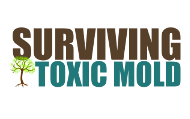CALIFORNIA
California Renter's Rights with Mold As renters in California, we have the right to live in a safe and healthy environment, which includes the quality of air in our homes, or indoor air quality (IAQ). Mold spores circulating in the air can create harmful living situations and lead to health problems for you and your family. California is one of only five states to have regulations against mold growth in rentals, recognizing that there is a potential health risk involved with mycotoxins (molds that produce harmful chemical toxins). Children, the elderly and persons with compromised immune or respiratory systems are at the highest risk for health issues due to mold. Effects can range anywhere from allergic reactions to rashes or repertory issues. California State laws provide us, the renters, with the opportunity to fix the problems ourselves and deduct the cost from our rent. So if your landlord is lagging on fixing your property, you still have options. The Toxic Mold Prevention Act of 2001 (TMPA), established by the Department of Health Services (DHS), sets standards for mold levels in indoor air. The law also allows DHS to identify remediation standards for owners, contractors and landlords. Mold growth is classified as a factor of inhabitable conditions and is required, by state law, to be taken care of by landlords according to Civil Code 1941.1, Green vs. Superior Court. This includes having proper inspections done by licensed mold inspectors and then having the mold removed from the property by qualified contractors. As tenants we have the right to hire inspectors ourselves to get this work done and take the cost out of the following month’s rent. However, you must give your landlord notice that you are having this work done and give him/her a proper amount of time to fix the issue. It is also necessary for the mold growth to have been caused by faulty conditions to your home. Mold growth often occurs because of a leak from a pipe, roof or window. If the leak is slow and goes unnoticed for a long period of time, mold growth is practically a give-in and will need to be removed. . http://ow.ly/IIvZ30kncC4 |
ILLINOIS
|
Michigan
Toxic Tort Lawsuits Now Easier to Win in Michigan The Michigan Court of Appeals in a case called Genna v Jackson recently ruled that plaintiffs alleging injury from exposure to mold did not have to present an expert witness to prove that they had suffered physical ailments as a result of exposure to mold. According to the court, it was enough that mold was present and that the plaintiffs had physical ailments that could be attributed to mold exposure, even though they did not present a witness that could make a causal connection between the exposure and the injuries that the plaintiffs allegedly suffered. The court left it to the defendant to disprove that the mold exposure did not cause the alleged illnesses. The Genna Court, however, decided that it was not necessary to use expert testimony to tie the plaintiffs' claims of illness to the type of exposure, although often such a determination would need medical testimony that can connect the exposure to a specific illness that the plaintiff has suffered. The medical doctors who treated the Genna plaintiffs could not state with a scientific medical certainty that the plaintiffs suffered a direct harm as a result of mold exposure, but the court determined that a lay jury could. It then required the defendants to disprove the medical conclusion without it ever being introduced by the plaintiffs in the first place. As it stands now, the law in the State of Michigan is that in toxic tort lawsuits, plaintiffs need not necessarily establish medical causation with respect to their claimed injuries. It is enough that they can prove that an exposure occurred and that their symptoms are consistent with exposure to that type of toxic substance. This would presumably hold true for mold exposures, as well as exposure to any sort of substance or cause, even electromagnetic fields. This eases the plaintiffs' burdens in such suits and makes them easier to win. |
NEW JERSEY
Landlord Liability for Mold in New JerseyThere is currently no federal law covering a landlord's responsibilities when it comes to mold. Also, New Jersey doesn’t have any laws that specifically address a landlord’s duties or liability when it comes to mold prevention and remediation. However, tenants who believe they have been harmed by the presence of high concentrations of mold in their apartment can try to recover damages from their landlord in court to compensate them for their loss. If a judge or jury agrees that the landlord negligently created a mold problem or allowed one to continue at a property, the landlord could be on the hook for any harm. |
NEW YORK Laws regarding licenses to test mold, or remediate mold. On January 1, 2016, New York State’s mold law went into effect. According to the law, "mold" means any indoor multi-cellular fungi growth capable of creating toxins that can cause pulmonary, respiratory, neurological or other major illnesses after minimal exposure. http://labor.ny.gov/workerprotection/safetyhealth/mold/mold-program.shtm. |
ENGLAND The Homes (Fitness for Human Habitation) Act comes into effect on March 20, 2019 and allows disgruntled tenants to go to the courts if their accommodation is not maintained well enough. An update of the Landlord and Tenant Act 1985, the new law will apply to tenancies of less than seven years in England and Wales.
|
WALES The Homes (Fitness for Human Habitation) Act comes into effect on March 20, 2019 and allows disgruntled tenants to go to the courts if their accommodation is not maintained well enough. An update of the Landlord and Tenant Act 1985, the new law will apply to tenancies of less than seven years in England and Wales. |









